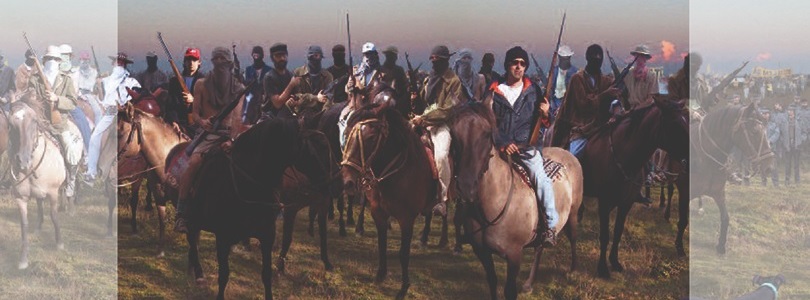
Ignacio Aguiló introduces his new book, The Darkening Nation: Race, Neoliberalism and Crisis in Argentina.
At the turn of the twentieth century, and after a decade of drastic neoliberal reforms, Argentina experienced the worst economic crisis in its history. At the time, half of the population was living in poverty, the unemployment rate was 25% and job insecurity was widespread. In December 2001, the freezing of bank savings was met with social unrest, which led to the fall of the government. Subsequently, the country declared a default on its public debt – the largest in history at the time. While there has been a large body of scholarship examining the economic and political implications of this crisis, few have analysed its cultural dimension. The Darkening Nation aims to fill this lacuna by reading the crisis across cultural productions such as novels, films, artworks and songs produced during this period of national emergency, and showing how the country’s economic collapse was experienced by sectors of the population as a crisis of national and racial identity.
During the twentieth century, dominant templates constructed the nation of Argentina as a sort of regional exception: a white Europeanised country in Latin America. This exceptional whiteness was, allegedly, the result of both massive European immigration and the extinction of pre-existing indigenous, black and mixed-race people at the turn of the twentieth century. Although in reality non-white groups did not wither away but were instead invisibilised through a complex series of cultural and social strategies, the idea of a ‘white Argentina’ became a powerful articulator of nationness, both internally and abroad. Mexican poet Octavio Paz summarised this by stating that, ‘[t]he Mexicans come from the Aztecs, the Peruvians from the Incas, and the Argentinians from the boats’. Through the analysis of cultural expressions, The Darkening Nation demonstrates that the 2001/2 financial meltdown was experienced by those sectors of society that had embraced and sustained the notion of ‘white Argentina’ as a traumatic process of national ‘Latin Americanisation’ and ‘darkening’. In so doing, it exposes and problematises the often overlooked link between economic crisis, national identity and race in Argentina.
The feeling of national blackening also led to a rise of racism, which was particularly targeted at immigrants: Peruvians, Bolivians and Paraguayans were blamed for the economic decline of Argentina, and portrayed as ‘contaminating’ the country’s historical whiteness. In this sense, The Darkening Nation shows how many processes currently affecting the Western world in the aftermath of the 2008 global financial meltdown had already taken place in Argentina at the beginning of this century. In both contexts, reactions against impoverishment were expressed through the embrace of anti-immigrant and nativist sentiments, and a call to return to an idealised national past of cultural and racial homogeneity. The election of Trump and the Brexit vote are seen as paradigmatic examples in Anglo-Europe of conservative responses to the failures of neoliberalism.
Lastly, The Darkening Nation charts the ways in which, during the Argentinian crisis, certain cultural producers challenged dominant narratives of whiteness and their exclusionary nature. They exposed that, rather than being extinct, indigenous, black and mixed-race populations had been systematically and symbolically expelled from the nation throughout the twentieth century. By looking at how culture became a platform for the critique of restrictive ideas of national belonging and racism during the country’s economic collapse, this book contributes to the study of the usually sidelined yet enormously influential cultural dimensions of the crisis. Yet the book’s impact goes beyond Argentina and Latin America; it explicates how the current pressing issues in the United States and Europe were navigated years ago by Argentinian society. As such, The Darkening Nation can also cast light on strategies to respond to the growth of racism manifested as a reaction against the negative socioeconomic impact of neoliberalism.
Dr Ignacio Aguiló is Lecturer in Latin American Cultural Studies at the University of Manchester.


